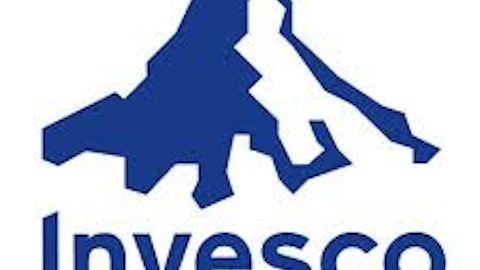Anworth Mortgage Asset Corporation (NYSE:ANH) started its operations in 1998 as a debt mortgage REIT with an objective of providing its shareholders with elevated returns primarily through dividends. For this purpose, the company seeks to invest primarily in mortgage backed securities for which the principal and interest payments are guaranteed by any of the government Agencies like Fannie Mae or Freddie Mac. Traditionally, the company had concentration in adjustable rate mortgages (ARMs). At the end of the fourth quarter, 45% of the company’s investment portfolio was adjustable rate Agency MBS with a 2-5 year reset period. This is down from 51% at the end of the third quarter. 15-year and 30-year fixed rate Agency MBS were 48% and 4%, respectively.
Anworth Mortgage reported its fourth quarter performance on Feb. 7, with interest income of $45.1 million, down 16% from a year ago. Much of the decline was a result of a16% decline in interest accruing from Agency MBS, partially offset by a surge in other income. Interest from Agency MBS is the largest contributor in the quarter’s interest income. On average, the company earned 2.92% yield on its interest yielding assets during the quarter, down 12 basis points from the linked quarter. Much of the decline is blamed on the flattening of the yield curve as a result of the Fed’s Operations Twist and QE3.
Interest expense during the quarter largely remained flat at $22.4 million compared to the linked quarter. On average the company paid 1.1% on the cost of funds it borrowed. The cost of funds increased 2 basis points from the linked quarter. Besides, the company also incurred 0.88% in amortization costs of premium.
The company earned a net interest rate spread of 0.94% during the fourth quarter, down 15 basis points from the linked quarter. The company earned net interest income of $22.7 million, down from $31.3 million from a year ago.
During the quarter, the company earned $4.4 million through gain on sale of Agency MBS, while total expenses surged 16% to $3.9 million. Much of the surge in expense was a result of the management fees, partially offset by compensation, incentive compensation and benefits. The company posted a net income of $23.3 million, against $28.4 million at the end of the most recent quarter.
Hedges
The company maintained its percentage of outstanding repurchase agreement balance at 39% during the fourth quarter. This is compared to 50% for CYS Investments Inc (NYSE:CYS), 63% and 40% for American Capital Agency Corp. (NASDAQ:AGNC) and Annaly Capital Management (NYSE:NLY), respectively.
Prepayments
Anworth reported prepayment speeds of 26% for its Agency and non-Agency MBS for the fourth quarter. This remains flat compared to the linked quarter. However, the prepayment speed for its adjustable-rate and hybrid securities decreased from 26% at the end of the third quarter to 25%.
In comparison, CYS reported relatively slow prepayment speeds for its MBS portfolio. The prepayment speeds as represented by conditional prepayment rate for CYS, AGNC and NLY were 17.6%, 10% and 19%, respectively. American Capital and Annaly Capital are exclusively invested in fixed rate mortgage backed securities of varying maturities.
Book Value
Like the rest of its peers, Anworth reported a sequential decline in its book value. The book value at the end of the fourth quarter declined 4.16% to $7.14 per share. In comparison, American Capital Agency’s book value decreased 2.6%, while Annaly Capital Management reported a 4.5% decline in its book value at the end of the fourth quarter.
Conclusion
I rate the shares of Anworth Mortgage an outperform on a diversified MBS mix, elevated dividend yield of 9.7% and its attractive relative valuations. Anworth is trading at a 13% discount to its book value compared to 7% discounts for Annaly Capital and CYS Investments. American Capital Agency is trading in line with its book value.
The article Three Reasons to Buy This mREIT originally appeared on Fool.com and is written by Adnan Khan.
Copyright © 1995 – 2013 The Motley Fool, LLC. All rights reserved. The Motley Fool has a disclosure policy.




